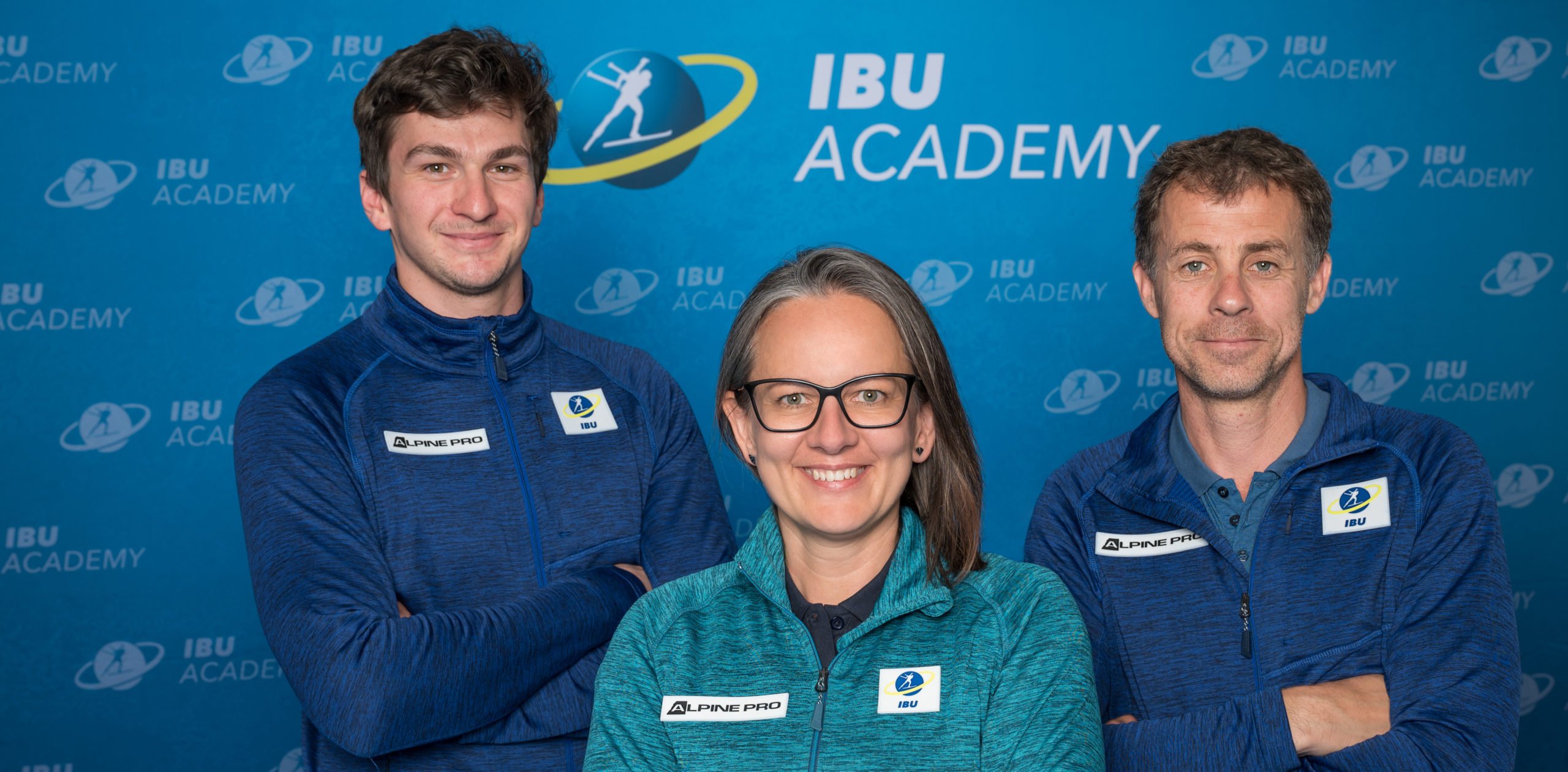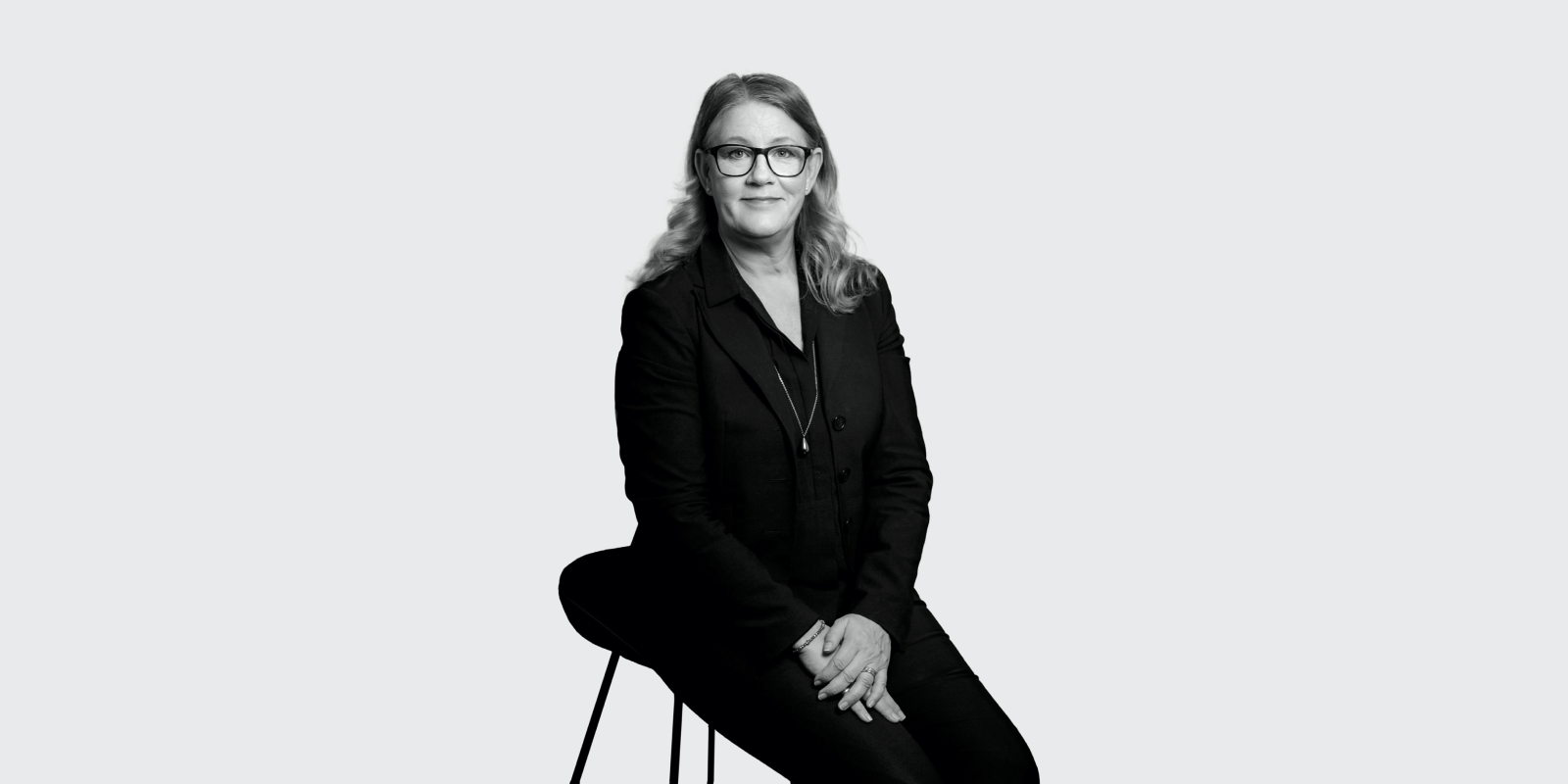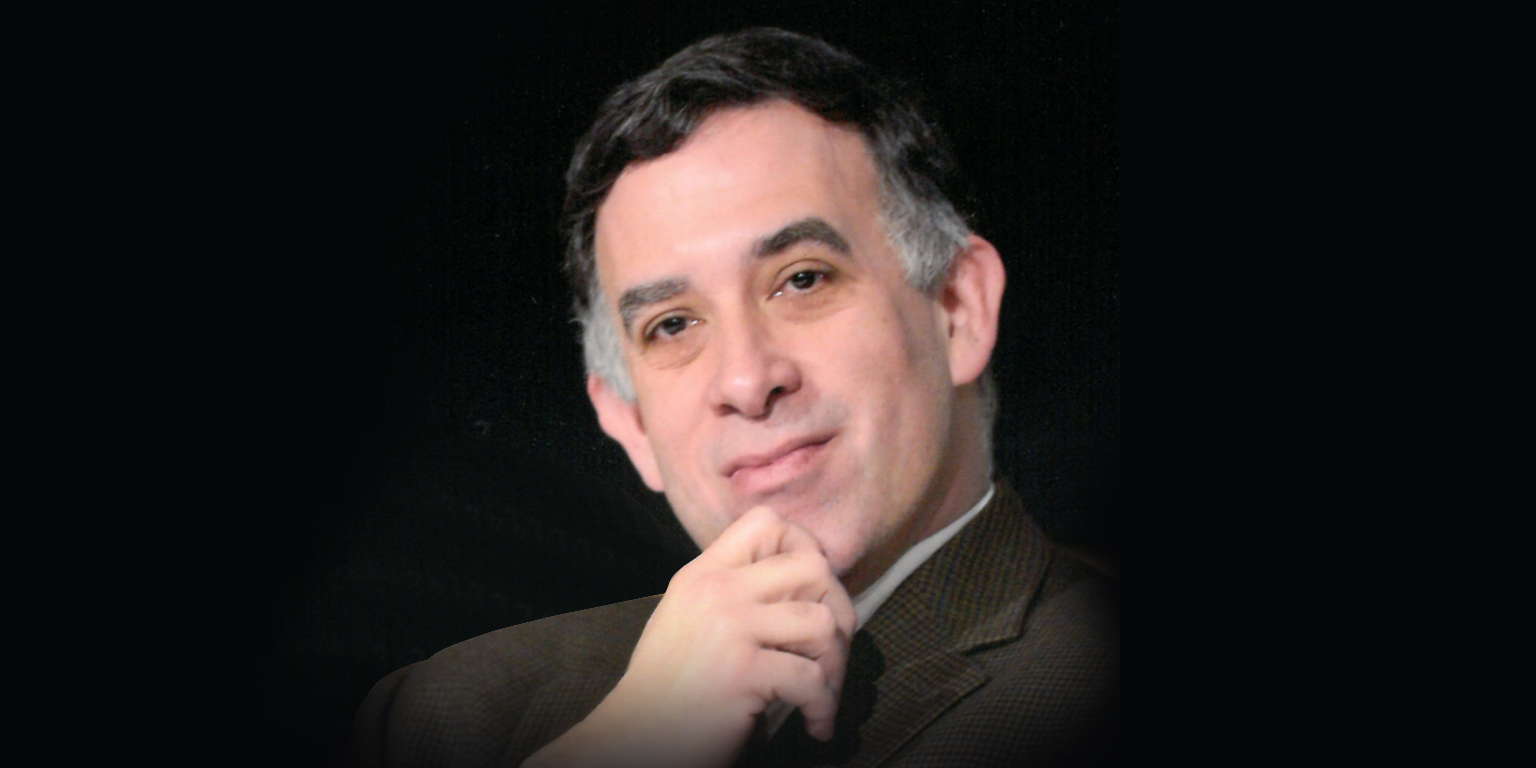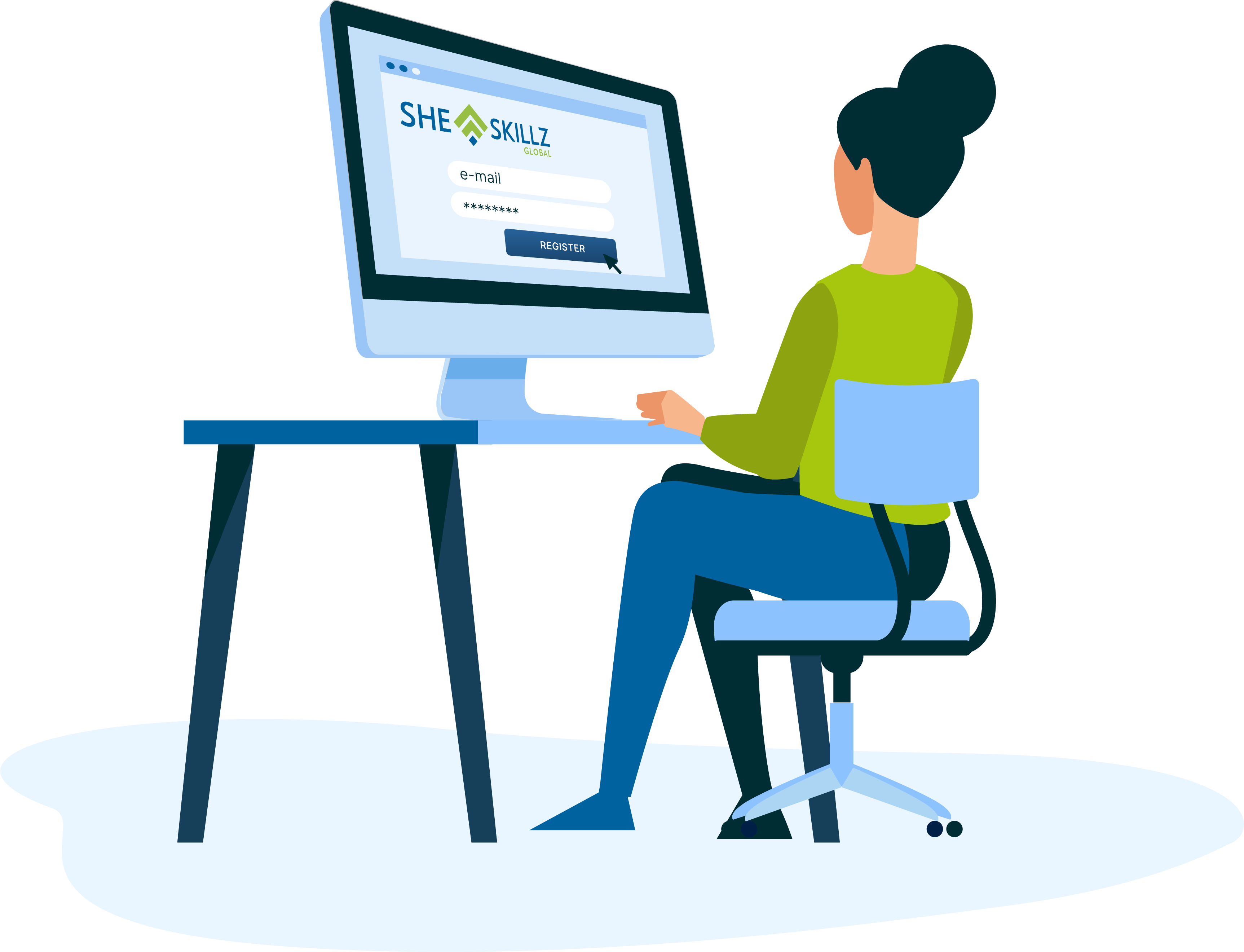“The international football organizations UEFA and FIFA must focus more on gender equality”, states Karen Espelund, former-Norwegian football official (National and International). “If they don’t change, they’ll end up like dinosaurs at some point, and we all know what happened to them….”
Karen Espelund is the fifth guest of the series “A chat with change leaders” led by Guro A. Johnsen, founder of SHESKILLZGLOBAL, on work-related topics, leadership, change management, gender equality and the vision of SHESKILLZGLOBAL “A world where talent has no gender”.
Karen is an experienced director in different community areas. Today, she is the CEO for all the museums in Sør-Trøndelag in Norway. But most of all, she is most known for her work connected to soccer, in Norway and on the international level. She started her soccer career as a football player in 1976 in the team Trondheims-Ørn. She also played some matches for the national team. In 1988-1999, she was elected as an executive board member in the Norwegian Football Federation (NFF). Then, in 1999-2009 she served as the Secretary General. For almost 15 years, she was chairing the Women’s football Committee at the UEFA (The Union of European Football Associations) and was then appointed to the UEFA executive committee in 2011. She has also had several positions in different FIFA committees.
I, Guro A. Johnsen first met Karen when I was working for the Norwegian Olympic Committee/Olympiatoppen. For many of us, she has been a very charismatic and powerful female role model. She has never been afraid of using her voice, even in the football world that everybody knows is run by men. When she was elected to the UEFA board, she emphasized: “Women are one of the biggest social movements and must be given the possibility to take active part in all functions in football – not only as players.”
I am very happy that she has joined the SHESKILLZGLOBAL community both as an investor and as a SHESKILLGLOBAL mentor.
GJ: What do you think of SHESKILLZGLOBAL vision: “A world where talent has no gender”?
KE: A world where talent has no gender should be something obvious, but at the same time, I know it’s nothing obvious to most people. I think they haven’t grown up under the same frames I did in my family and with my friends. We should only focus on competencies. Anything else has no point.
It is also well documented through research that all organizations perform better with diversity among staff and board members. But many organizations still tend to recruit within more or less the same group as already represented. Quota as a mechanism is therefore also a tool to “force” the organization to recruit new perspectives and to consider what is the so-called “right” background. Sport organizations are only one of many examples where the traditional competence has been reproducing itself.
I think it is not only a stereotype that women are less risk-taking – this can be considered both as a barrier, but in many situations a positive characteristic.
Do you think your career would have been different if you were a man?
That’s a good question. It may well be, as the world around me would have met me differently. Being the “good hard-working girl”, being good in all expectations, was tiring when I was in my 20s. On the other hand, my career wouldn’t necessarily have been different. For me, gender quotas were a good tool. But it was also important to emphasize that I was good enough to be hired, without any need of quota!
Nevertheless, I think some men showed inappropriate behaviors (didn’t listen to what I was saying, interrupted me in a rude way, made me feel smaller…) with me because I was a woman. This could have affected my self-confidence, but it didn’t. At UEFA (Union European Football Association), we had many discussions and used different measures to break down the stigma that women could face.
I also think women should keep in mind that it’s ok if they don’t do everything perfectly. One shouldn’t dare of prioritizing things and giving a “damn” on things that are not so important. But this is a challenge!
To my opinion, the recruitment process is very important as well. One must be very cautious about gender equality when hiring. I have experienced that the use of role-playing in the recruiting process can contribute to a more diverse team. Also, It is important to choose recruitment/headhunting companies with both genders in their network. In that sense, it is a good idea that SHESKILLZGLOBAL has made it possible for the candidate to remain anonymous. We all have biases.
“For me, gender quotas were a good tool. But it was also important to emphasize that I was good enough to be hired, without any need of quota!”
You’ve agreed to be a SHESKILLZGLOBAL mentor. Why do you find this program exciting to be a part of?
I have been lucky to have multiple and diverse experiences that can be of interest for people, I hope Looking back, there are things that I would do differently. This makes me confident that I can help others by sharing my experiences and thoughts, as I think it might have helped me to share and discuss some issues with an external person during my career. Helping other people to develop is very exciting and rewarding. The fact that the mentor program is also international, with mentors and mentees from different countries, makes it even more exciting.
A mentoring program dedicated to women empowerment is also a good way to raise awareness on women’s competencies and experiences. Including those who already understand that both the potential of women and men is essential.
The World Economic Forum’s report concluded that it will take more than 130 years before reaching gender equality in society, taking into account the development steps we take today. What do you think about it?
The question is what can women do to help accelerate the gender equality path? We must be mentors to those who come after us. Younger generations of women don’t always understand the structures. Women can and dare, but unfortunately, the organizational structures stop them. This applies both in business and in sports. The municipality area in Norway is relatively good in adapting to these facts. I was also in the government and some NGOs.
How will we get those in decision-making positions to make the necessary changes? I think we need to look at the ways of working as well. The pandemic may have helped; we have become more flexible when working remotely. When it comes to international sports, we need to change the structure, how the organizations work today to enable female advancement.
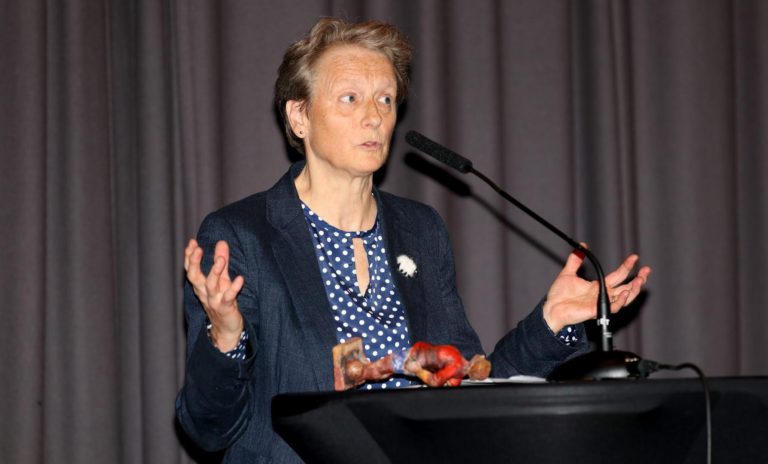
Photo: Private: Karen holding a speech when her mentor, Per R. Omdal, was honored by the Norwegian king with St. Olavs order for his longtime work in football. Karen herself got the Honorary award from Nowegian Olympic Committee, 2022 for her work in sport.
I sometimes get a little disappointed when I see that women are not always good at helping and supporting other women and standing up for each other. What are you thinking?
I must admit that I’m a little allergic to “Gucci-dressed” women who sit in positions and build networks thanks to their social level. This is probably more a group of women aged 45 and over than the younger generation. In Norway, you can see tendencies that some of the same women sit on different boards, so how good are we really in Norway when it comes to gender equality and seeking complementary expertise in the team. I have seen that also in sport organizations that when there is a young female coming up “everybody” wants her in different positions. I have been a mentor for such a person and discussing also the ability to say no and prioritize was an important subject between us. One person cannot solve all aspects of diversity….
We’ve discussed this on a board I’m sitting on. How do we search for new people? We also want younger women in. There’s a will to do this, but it’s going slowly… This is one of the reasons I find SHESKILLZGLOBAL important to increase the speed towards gender equality in society and to put the ”spotlight” on all the competent women willing to take a role on all level of the organizations. But again one needs to be aware of the duality in this work – the individual approach and the structural approach.
Some CEOs have shared how they can feel lonely at the top, maybe this is even more the case when you’re a woman?
Sometimes people in a company/organization play a game that is not always nice. This also happened to me. I received a so-called “death kiss ” from UEFA president Michel Platini. Everyone knew I’d done an good and dedicated job. But I stood for some ethical principles with a group of others. I proposed that the female position in UEFAs exco should be elected and not appointed. I got a French opponent. I was okay with getting an opponent – that is democracy, but Platini had played his cards well and used his authority also regards the administration in the election process. This was not an OK experience or in line with good governance. When things like this happens you often feel alone. For me it was interesting to see how many of my colleagues stood up and showed me support, and how many did not move when this happened. One of the calls I got was from the Dutch Federation president, who supported me, this felt good.
Men may also feel lonely, but you become more visible when you are the only woman in a system or one of the few women. Then, female leaders become much more visible. It’s easier also to point you out when they want to make an example or are going to “go after someone in a not nice way.” The press also plays a role here—use of images, only ugly images when you are in a complex process. When the process finishes, nice photos again; good advisors are essential when you are in such situations. I had the chance to be supported by good advisers, but I started using them too late. In sports, because there are more men, there is more support from men to men. Men are also better at supporting each other in the media. When it comes to international sports, with few/no women at the top, it isn’t easy. Those involved are most often loyal to existing structures and networks created and established by men.
What do you think of the saying, “men promote men?”
I’m not fond of the extreme networking strategy as you often witness. It’s important to bring others forward, to talk good about them to others. I ask myself, do men help others, or do they primarily help themselves? When women are less visible, it is also more difficult to promote them. You must know who they are and what they stand for to be able to encourage them.
Although it is dangerous to create a correlation between ethics and gender, based on research, one can ask: Would there be less corruption if there were more women involved? Would there be a greater focus on what is essential?
I think age is on our side. Men who are the most prominent opponents of women will ‘die out.’ If you do not use women’s competencies, you lose the resources that you need in the organization.
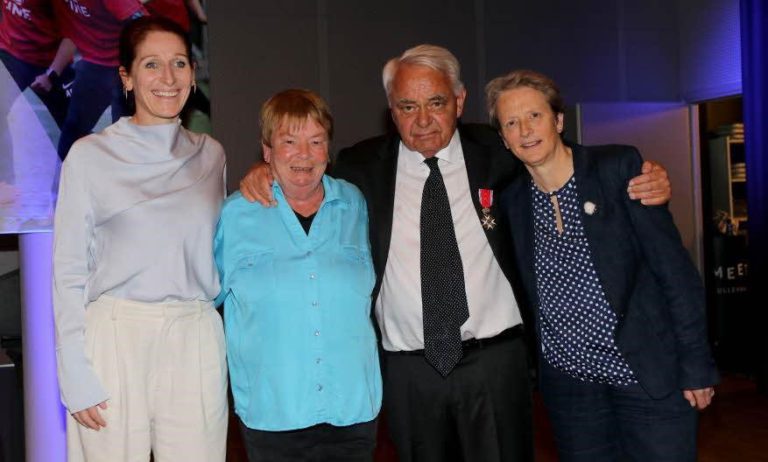
Photo: Private: Karen together with today’s President for the NFF, Lise Klaveness. Lise is a former player for the Norwegian soccer team. She used her voice in spring 2022 to give a speech at the FIFA congress about human rights and equality, Ellen Wille – the first female executive board member in NFF and the first female to speak in a FIFA congress in 1986 when she asked FIFA to set up a women’s WC, Per Omdal former president of NFF, Vice president of UEFA and a good mentor and conversation partner for Karen.
You had a good mentor and conversation partner in Per Omdal. Why is it important for women to establish alliances with men?
It’s essential to have good male alliances. I was very fortunate to have Per Omdal, who is the best in the world when it comes to promoting women. We from Norway had three women at both UEFA and FIFA congresses already in his time. It’s essential to listen to someone you know who wants you well. Accept the expertise and experience they want to share with you. Per taught me that there are no stupid questions. Asking questions is easier when you’re safe. Sometimes I ask questions, although I know the answer, but this is to help others who can ask themselves the question but don’t dare to raise their voice. Sometimes you have to take a role. I think it’s essential to take a position where I show them that I also don’t know everything.
I was lucky in my first election to the exco of the Norwegian football association, back in 1988. The president at that time, Per R. Omdal, took me “under his wings” and he has always been extremely good in introducing us women both nationally and internationally. In fact, he became my mentor without formalizing the role.
“It is essential for women to have male alliances.”
When I meet someone from the UEFA administration, they always talk very positively about you. Why do you think it’s like this?
In stressful situations, you often get a little narrow in your perspectives. But it is also essential in these situations to see people. Necessary also to be aware that someone wants all the attention from you.
It’s important to people that they’re remembered, so when I don’t know where I’ve met someone, I usually say, “I know you from somewhere, but I don’t remember where.” I always try to be a little unpretentious and ask, for example, “can you help me understand the consequences… “
For me, it’s important to show that I see the women who are on the rise. I’m not very concerned about hierarchy, so seeing all the persons in “ground office positions” is also important to me. It is probably also a bit in “our DNA” as Norwegians. Some years back, we had a large delegation from different countries when I was secretary general of the Norwegian Football Federation. The person responsible for the session asked Per R. Omdal and me to deliver some papers to the participants, and we did. The only thing people talked about during the dinner was: How could he have asked the two of us… I know the UEFA administration liked that we saw the people and not their positions/roles.
What do you think about the UEFA/FIFA position towards women in leadership positions?
Football has an incredible power in the world. Being a secretary general or president of both national federations and in roles in international offices provides a power of dimension. This means that women who come to a leadership position will, therefore, take power from a man.
To make changes, you must look at:
– Quota schemes
– Mentor program
– Programs for leaders
– Structural changes in the way the organization is structured and work
I think it is important that female individuals dare to say yes when there is an opportunity. Because it is important to have more than one female representative on the board.
My advice to those who want to play an active role in organizations:
Take office, dare to say yes. It is also essential to add cultural understanding. Learn and understand what mechanisms you need to deal with. It is more accessible in football to be a woman in Germany and the Nordic countries. It’s harder to get southern and eastern European men to give up their power – or in other parts of the world.It is easy for them to find excuses for why the work/structure is unsuitable for women. The exact reasons often occur.
But the international federations need to change. If not, they lose the positive reputation of society. UEFA and FIFA must adapt to the world in which they operate, focusing more on gender equality. This is also about sponsors and the media. If they don’t change, they’ll end up like dinosaurs at some point, and we all know what happened to them…
Founder and CEO for SHESKILLZGLOBAL
-
Guro A. Johnsenhttp://3.65.75.14/author/guro-johnsen/
-
Guro A. Johnsenhttp://3.65.75.14/author/guro-johnsen/
-
Guro A. Johnsenhttp://3.65.75.14/author/guro-johnsen/
-
Guro A. Johnsenhttp://3.65.75.14/author/guro-johnsen/









